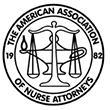The following information is intended to describe the legal process and the focus of this law firm on the “DEFENSE” of nuisance claims and Lawsuits. The law of nuisance generally includes neighbors suing their neighbors. Other times it involves a public official suing a land owner for the greater good of the public. Typically, the plaintiff seeks to restrict the use of the defendant’s land. Essentially, the plaintiff is saying: “You are disturbing the peace and enjoyment of my property, and you need to stop behaving in that way.”
Types of Nuisance Laws
There are two primary types of nuisance lawsuits: private and public.
- PRIVATE NUISANCE. Private nuisance refers to a loss of use and/or happiness with the property without an actual trespass by the offender. An example of this would be an man who failed to properly clean his dog kennel, causing a repellent odor for his next-door-neighbors and keeping them from enjoying time in their yards. Another example would be a neighbor who let his trees become overgrown to the point that branches and leaves were collecting in the neighbor’s lawn.
- PUBLIC NUISANCE. Public nuisance is one that influences the health, well-being, or comfort of the public. Examples would include a factory that released bad odors across town or a racetrack that created excessively loud noises.
- MULTIPLE NUISANCES. Often times, nuisances can be both private and public. For example, the lights from a ballpark may shine directly into the home of a neighboring property, creating a private nuisance. The field may, at the same time, produce excessive noise that causes homeowners in nearby communities to keep their windows shut during the summer evenings. This would qualify as a public nuisance.
Seeking Relief
In order for the court to respond with an injunctive relief to stop the offensive activity, the nuisance must be both significant and on-going. A rare or isolated failure to clean out the kennel will likely be insufficient to obtain injunctive relief.
Injunctive relief typically requires the offender to take specific action to reduce the aversive effect of the activity. This may range from limiting the hours of said actions to placing and all out ban on the action. However, most courts will aim to balance the inconvenience of both parties. Particularly when the defendant is an ongoing business, the court will try to keep the economic consequences small.
Factors That Influence Courts
Court will examine the location of the reported nuisance as well as the applicable zoning restrictions that apply in that area. Consequently, a court will probably be less inclined to restrict activity on a livestock farm located in a rural area than on one just outside an urban area.
This does not mean that an activity located in an area specifically zoned for that type of operation cannot be found guilty of nuisance. For example, an area’s zoning may allow a mixture of residential and commercial buildings, but a court may still declare an “all night”gas station as a nuisance for residential owners in the area.
Nuisance Lawsuit Limitations
We DEFEND Nuisance cases. Not all property annoyances make appropriate lawsuits:
- Fear of a future injury will not justify injunctive relief
- Generally pure aesthetic considerations, such as the “look” of a building in a residential area, will not constitute a nuisance.
- When a person purchases a property with knowledge that a given activity/operation is located nearby, a doctrine called “moving to the nuisance” generally prevents injunctive relief. For example, if a person moves into a house next to a ballpark, they may be prohibited from seeking relief from the lights and noise.
Contact Us
As experienced real estate and nuisance defense lawyers, Spital & Associates is prepared to represent you as the defendant (and not the Plaintiff) during your property disputes. We can help ease the strain of such cases and either help you negotiate a solution with your neighbors or make sure that your rights are adequately protected in case a lawsuit arises. Contact us today to schedule a FREE Initial Extended Attorney Consultation.
Main Offices
8880 Rio San Diego Drive, Suite 800
San Diego, CA 92108-1642
Telephone: 619-583-0350
Fax: 619-583-1850
Banker’s Hill Associate Office
1901 First Avenue, Suite 138
San Diego, CA 92101
Associates available 24/7.
Call (619) 583-0350 or send us an e-mail.
The information you obtain at this site is not, nor is it intended to be, legal advice. You should consult an attorney for individual advice regarding your own situation.









